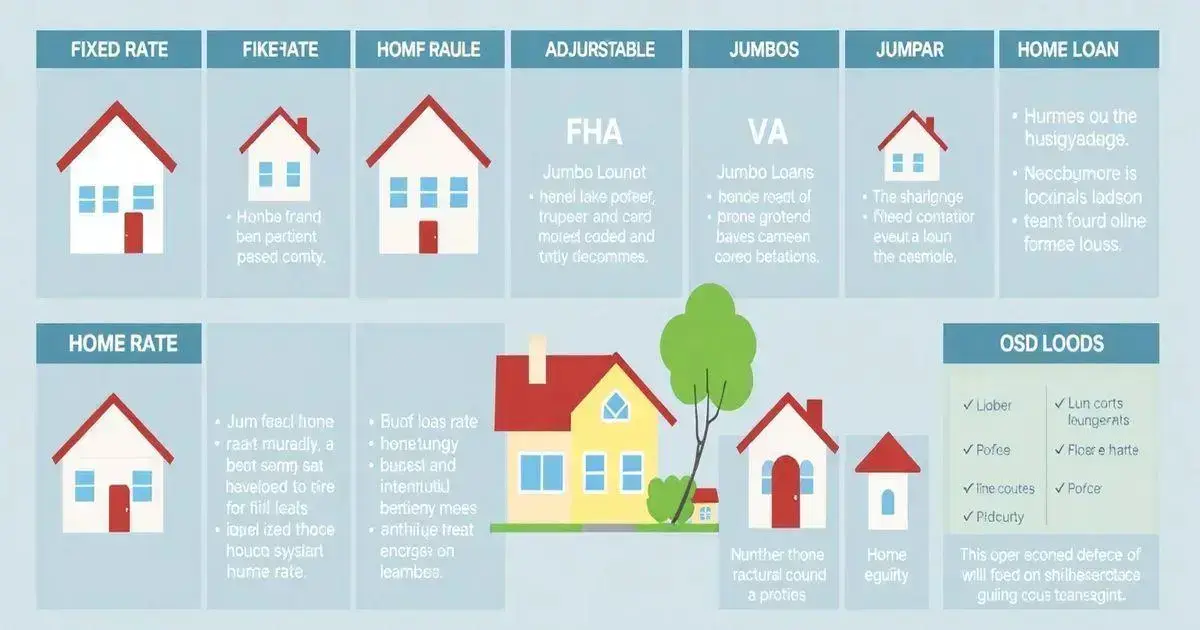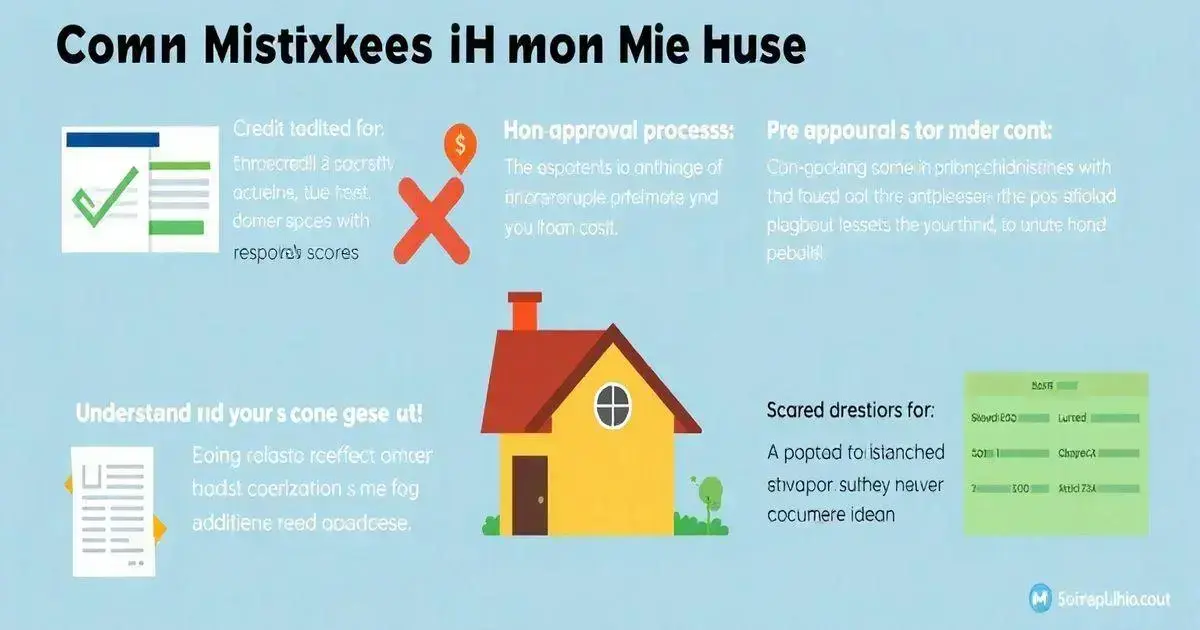Understanding home financing options is crucial for homebuyers. With various loan types available, choosing the right one can impact your long-term financial stability. Making informed decisions ensures a smooth home-buying experience.
In today’s dynamic real estate market, navigating financial choices can be overwhelming. From mortgage rates to down payments, every detail matters. Avoiding common mistakes can help you secure a better deal and prevent unnecessary financial strain.
By exploring different loan options and implementing smart strategies, you can find the best solution for your needs. A well-planned approach will set you up for a successful investment. Keep reading to discover key insights that will help you make the right choice.
What are Home Financing Options?
Home financing options refer to the various ways you can fund the purchase of a home. They are crucial to know, especially if you are a first-time buyer. Understanding these options helps you choose the best financial path for your circumstances.
Common Types of Home Financing Options
There are several types of home financing options available, each catering to different needs and situations:
- Fixed-Rate Mortgages: This is a popular choice. It offers a stable interest rate and consistent monthly payments throughout the loan term, typically lasting 15 or 30 years.
- Adjustable-Rate Mortgages (ARMs): These loans start with a lower interest rate that can change over time. They may be a good choice if you plan to move within a few years.
- Government-Backed Loans: Programs like FHA, VA, and USDA loans are designed to assist certain buyers, including first-time homebuyers and veterans. They often require lower down payments.
- Interest-Only Loans: In this option, buyers pay only the interest for a certain period. While this may seem attractive, it can lead to higher payments later.
- Home Equity Loans and Lines of Credit: If you already own a home, these options allow you to borrow against your equity for additional purchases or renovations.
The Importance of Research
It’s vital to research and compare these options, as each has its own requirements and implications. Consider factors like interest rates, loan terms, and repayment conditions before making a decision. Consulting with a financial advisor can provide valuable insights tailored to your situation.
Financial Literacy is Key
Understanding home financing options empowers you to make informed decisions. A solid grasp of how each option works will help you navigate the home-buying process more effectively, ensuring you choose a mortgage that fits your long-term financial goals.
Types of Home Loans Available

When exploring Home Financing Options, it’s essential to understand the various choices that can cater to your needs. Each type of loan has unique features, benefits, and qualifications, allowing buyers to select the best fit for their financial situation. Making the right decision ensures long-term financial stability and a smooth home-buying experience.
Fixed-Rate Mortgage
This is a common choice for many homebuyers. A fixed-rate mortgage typically has terms of 15, 20, or 30 years, during which the interest rate remains constant. This predictability helps with budgeting since your monthly payments won’t change. Among Home Financing Options, this is ideal for buyers seeking stability in their loan terms.
Adjustable-Rate Mortgage (ARM)
An ARM starts with a lower interest rate than fixed-rate mortgages. However, the interest rate can fluctuate after a specified period, often leading to lower initial payments. It’s one of the Home Financing Options suited for buyers planning to move or refinance before the rates adjust.
FHA Loans
Federal Housing Administration (FHA) loans are government-backed loans that are popular among first-time homebuyers. They require a lower down payment and more lenient credit score requirements, making homeownership more accessible. If you’re looking for flexible Home Financing Options, FHA loans can be a great starting point.
VA Loans
Available to veterans, active-duty military members, and certain members of the National Guard and Reserves, VA loans are backed by the Department of Veterans Affairs. They often come with no down payment and competitive interest rates, making them one of the most beneficial Home Financing Options for eligible applicants.
USDA Loans
United States Department of Agriculture (USDA) loans are for rural and suburban homebuyers who meet certain income requirements. These loans offer zero down payment options and lower mortgage insurance costs, promoting homeownership in less populated areas. Among various Home Financing Options, USDA loans are excellent for buyers in eligible areas.
Jumbo Loans
For buyers seeking to purchase high-value homes, a jumbo loan is a viable option as they exceed the conforming loan limits. However, they usually require a larger down payment and higher credit scores. This category of Home Financing Options is ideal for those purchasing luxury properties.
Home Equity Loans and Lines of Credit
If you already own a home, these financing options allow you to borrow against your home’s equity. A home equity loan provides a lump sum, while a home equity line of credit (HELOC) functions like a credit card with a revolving balance. These Home Financing Options offer flexibility for homeowners looking to fund renovations or major expenses.
How to Choose the Right Financing Option
Choosing the right financing option is a significant step in the home-buying process. Here are key factors to consider:
Understand Your Financial Situation
Begin by assessing your financial health. Know your credit score, monthly income, and existing debts. This information helps determine what financing options are available to you.
Evaluate Your Home Ownership Goals
Consider how long you plan to stay in the home. If you intend to move within a few years, an adjustable-rate mortgage (ARM) might be suitable. For long-term stays, a fixed-rate mortgage could provide more stability.
Consider Down Payment Requirements
Different loans have varying down payment requirements. FHA loans may require as little as 3.5%, while conventional loans might need 20%. Evaluate how much you can afford to put down.
Compare Interest Rates and Terms
Shop around and compare interest rates from different lenders. Even a small difference in rates can lead to significant savings over time. Additionally, pay attention to the loan terms, as this can impact your total cost.
Account for Closing Costs
When choosing a financing option, factor in closing costs. These can include lender fees, title insurance, and taxes. Understanding these costs helps you estimate the total upfront cost of purchasing your home.
Consult a Financial Advisor
Before making a final decision, consider seeking advice from a financial advisor or mortgage broker. They can provide tailored guidance, helping you weigh your options and ensure you choose the best financing for your unique situation.
Common Mistakes in Home Financing

Understanding common mistakes in home financing can save you time and money. Here are some prevalent pitfalls to avoid:
Not Checking Credit Score
Many buyers overlook checking their credit score before applying for a mortgage. A low score can lead to higher interest rates or even rejection. It’s essential to review your credit report and fix any errors before applying.
Skipping Pre-Approval
Some homebuyers skip the pre-approval process, which can be a costly mistake. Pre-approval gives you a clear understanding of how much you can borrow and shows sellers that you’re serious.
Focusing Solely on Monthly Payments
While it’s crucial to understand your monthly payments, focusing only on this can lead to overlooking fees and costs associated with the loan. Always consider the overall terms and your total loan costs.
Not Exploring Different Loan Types
Many buyers limit themselves to one type of mortgage. Explore all available options, like fixed-rate, adjustable-rate, and government-backed loans, to find the best fit for your financial situation.
Ignoring Additional Costs
It’s a mistake to only budget for the price of the home. Remember to include additional costs such as closing costs, property taxes, and homeowner’s insurance. These can significantly affect your budget.
Rushing the Decision
Purchasing a home is a major financial commitment. Taking your time to research, compare options, and evaluate offers can help you make a more informed decision and avoid buyer’s regret.
Tips for Securing the Best Deal
Securing the best deal when financing your home is vital. Follow these tips for securing the best deal:
Shop Around
Don’t settle for the first offer you receive. Compare rates and terms from multiple lenders. Each lender may offer different interest rates and fees, which can significantly impact your overall costs.
Improve Your Credit Score
Before applying for a mortgage, work on improving your credit score. Paying off debts and correcting any errors on your credit report can help you qualify for better terms and lower interest rates.
Consider a Larger Down Payment
Offering a larger down payment can help lower your monthly payments and may allow you to secure a better interest rate. Lenders often see larger down payments as a sign of lower risk.
Negotiate Fees
Many financing fees are negotiable. Ask lenders to waive or reduce fees where possible. Compare the annual percentage rates (APR) rather than just the interest rates, as this includes most fees and gives a clearer picture of the costs.
Lock in Your Rate
If you find a favourable rate, consider locking it in to protect yourselves from potential increases in interest rates over time. Rate locks are usually available for a limited period.
Consult a Mortgage Broker
A mortgage broker can help you navigate through various financing options and lenders. Their expertise can often lead to better deals, as they understand the market and can negotiate on your behalf.
Navigating Home Financing Options
Understanding home financing options is essential for every homebuyer. By learning about the types of loans available, common mistakes to avoid, and tips for securing the best deal, you can make informed decisions that align with your financial goals.
Take the time to educate yourself and evaluate your situation. Conduct thorough research, compare lenders, and plan your budget carefully. With the right approach, you can successfully navigate the home financing landscape, ensuring a smoother and more successful home-buying experience.
Remember, this journey is not just about purchasing a home; it’s about making a sound financial investment for your future.
Check out our article on Data Analysis to understand how it helps in making informed decisions and driving business growth.
